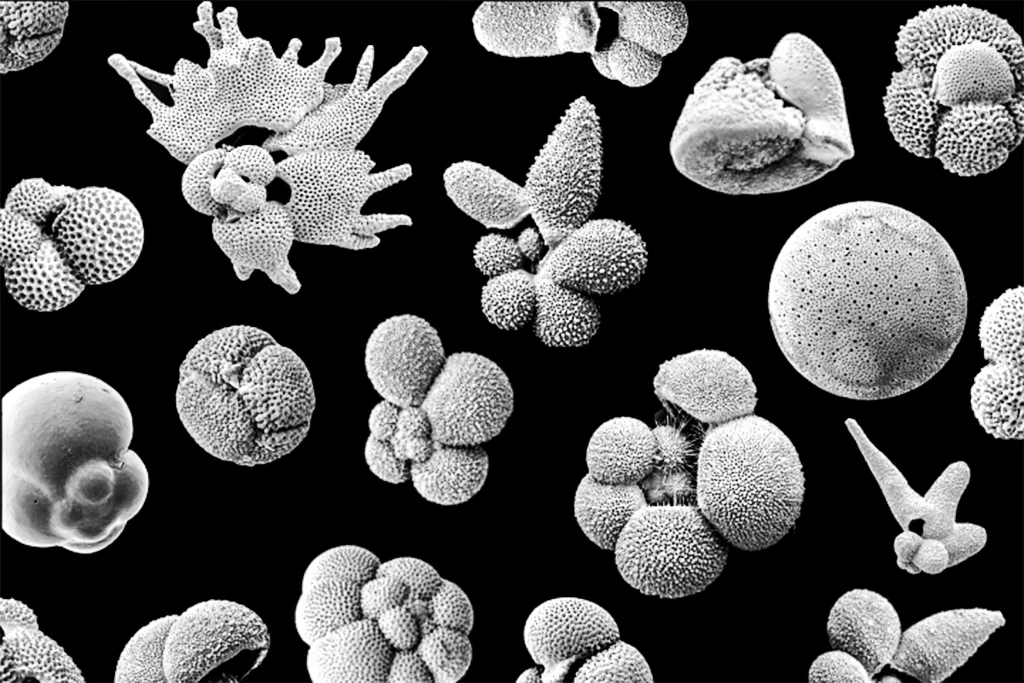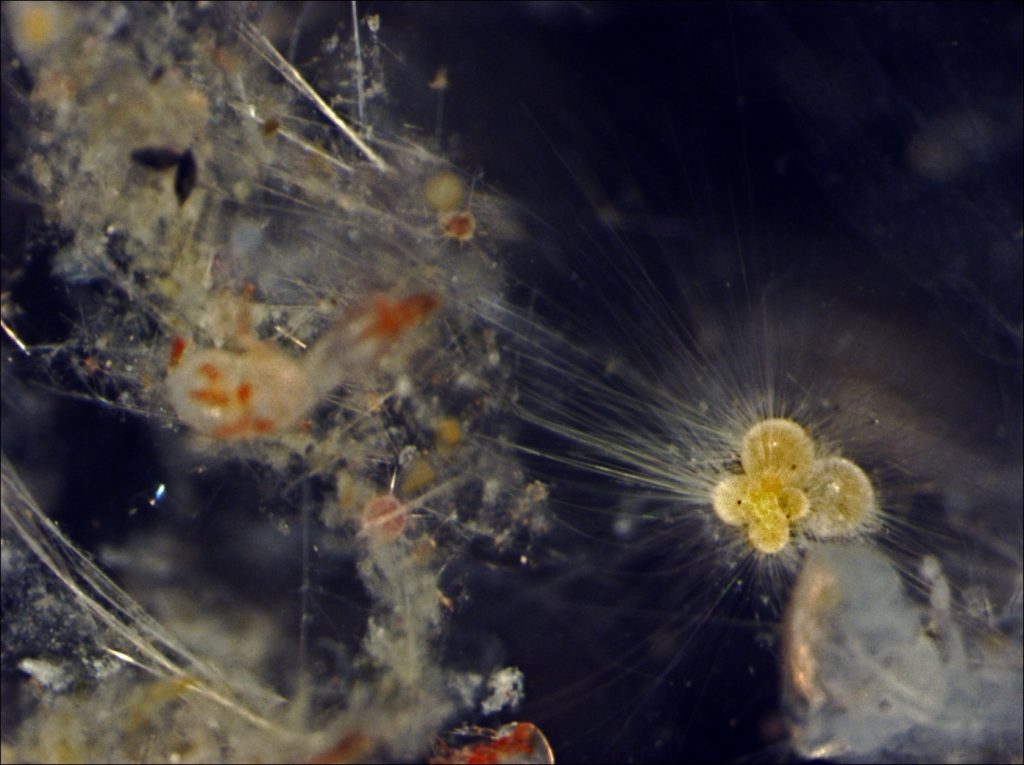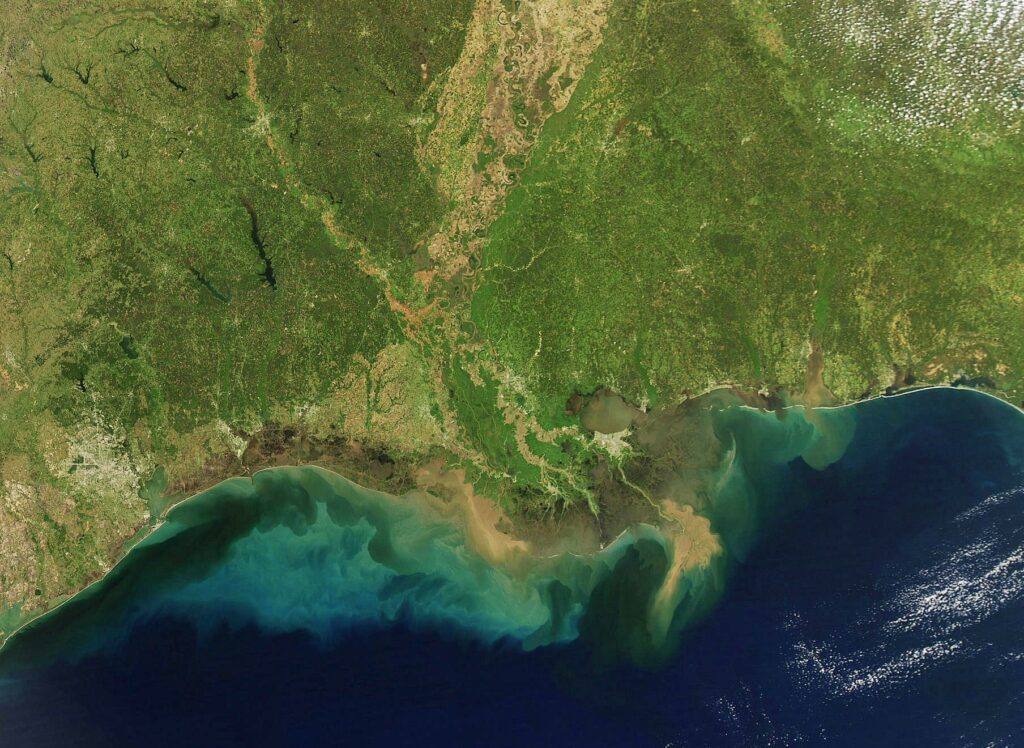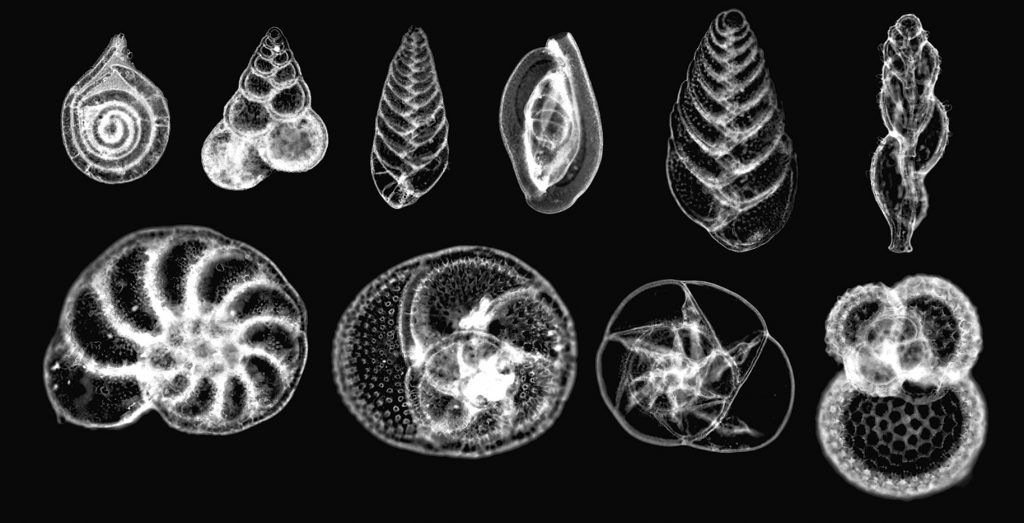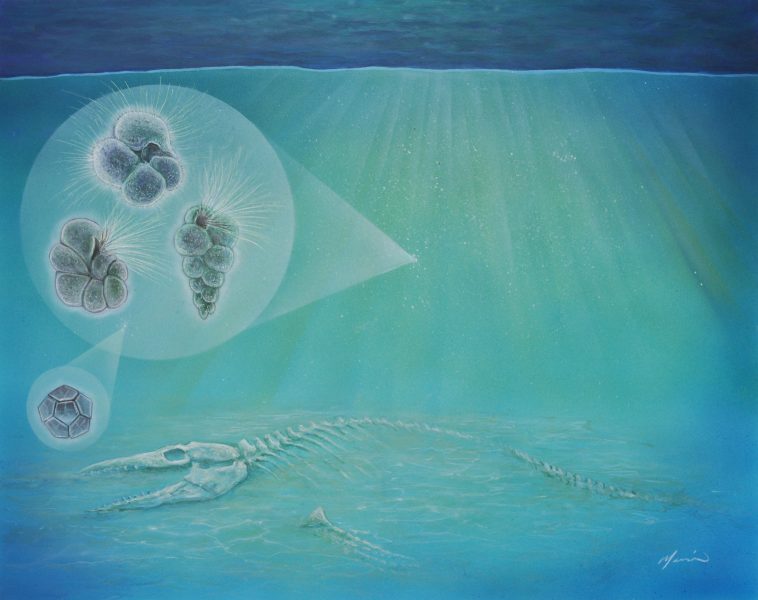Adapted from an article by Anne J. Manning at The Harvard Gazette, published April 24, 2024. Fossil record stretching millions of years shows tiny ocean creatures on the move before Earth heats up For hundreds of millions of years, the oceans have teemed with single-celled organisms called foraminifera, which are hard-shelled, microscopic creatures at the… Continue Reading Early warning sign of extinction?
Climate Change Could Cause Mass Exodus of Tropical Plankton
The tropical oceans are home to the most diverse plankton populations on Earth, where they form the base of marine food chains. Modern plankton biodiversity in the tropics is a surprisingly recent development and the result of 8 million years of global cooling, according to a study led by researchers at The University of Texas… Continue Reading Climate Change Could Cause Mass Exodus of Tropical Plankton
Research Shows How Gulf of Mexico Escaped Ancient Mass Extinction
An ancient bout of global warming 56 million years ago that acidified oceans and wiped-out marine life had a milder effect in the Gulf of Mexico, where life was sheltered by the basin’s unique geology – according to research by the University of Texas Institute for Geophysics (UTIG). Published in the journal Marine and Petroleum… Continue Reading Research Shows How Gulf of Mexico Escaped Ancient Mass Extinction
Evolution Imposes “Speed Limit” on Recovery after Mass Extinctions
It takes at least 10 million years for life to fully recover after a mass extinction, a speed limit for the recovery of species diversity that is well known among scientists. Explanations for this apparent rule have usually invoked environmental factors, but research led by The University of Texas at Austin links the lag to… Continue Reading Evolution Imposes “Speed Limit” on Recovery after Mass Extinctions
Life Recovered Rapidly at Impact Site of Dino-Killing Asteroid
About 66 million years ago, an asteroid smashed into Earth, triggering a mass extinction that ended the reign of the dinosaurs and snuffed out 75 percent of life. Although the asteroid killed off species, new research led by The University of Texas at Austin has found that the crater it left behind was home to… Continue Reading Life Recovered Rapidly at Impact Site of Dino-Killing Asteroid

